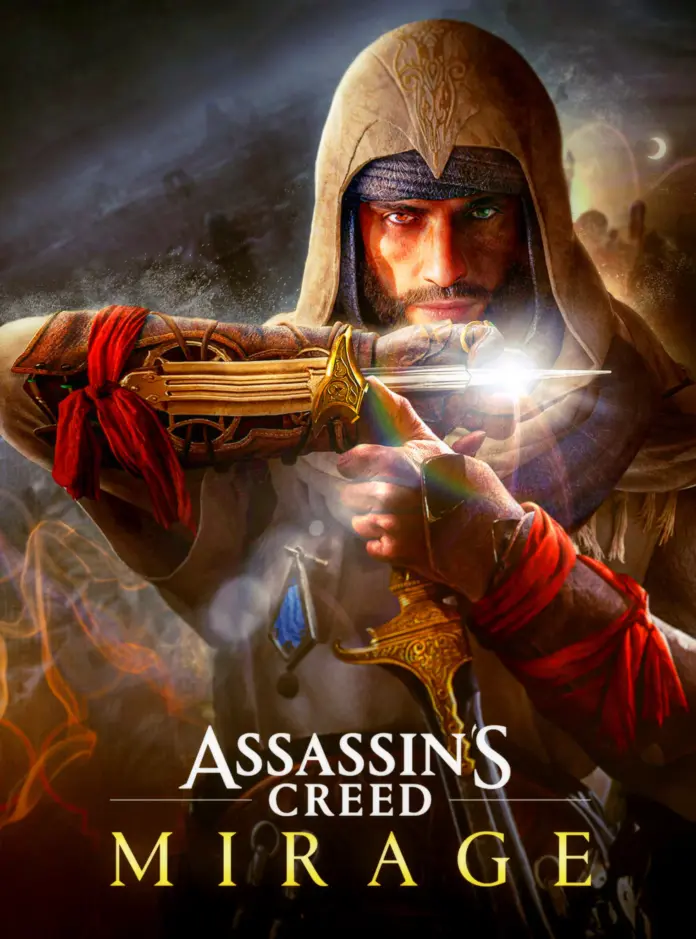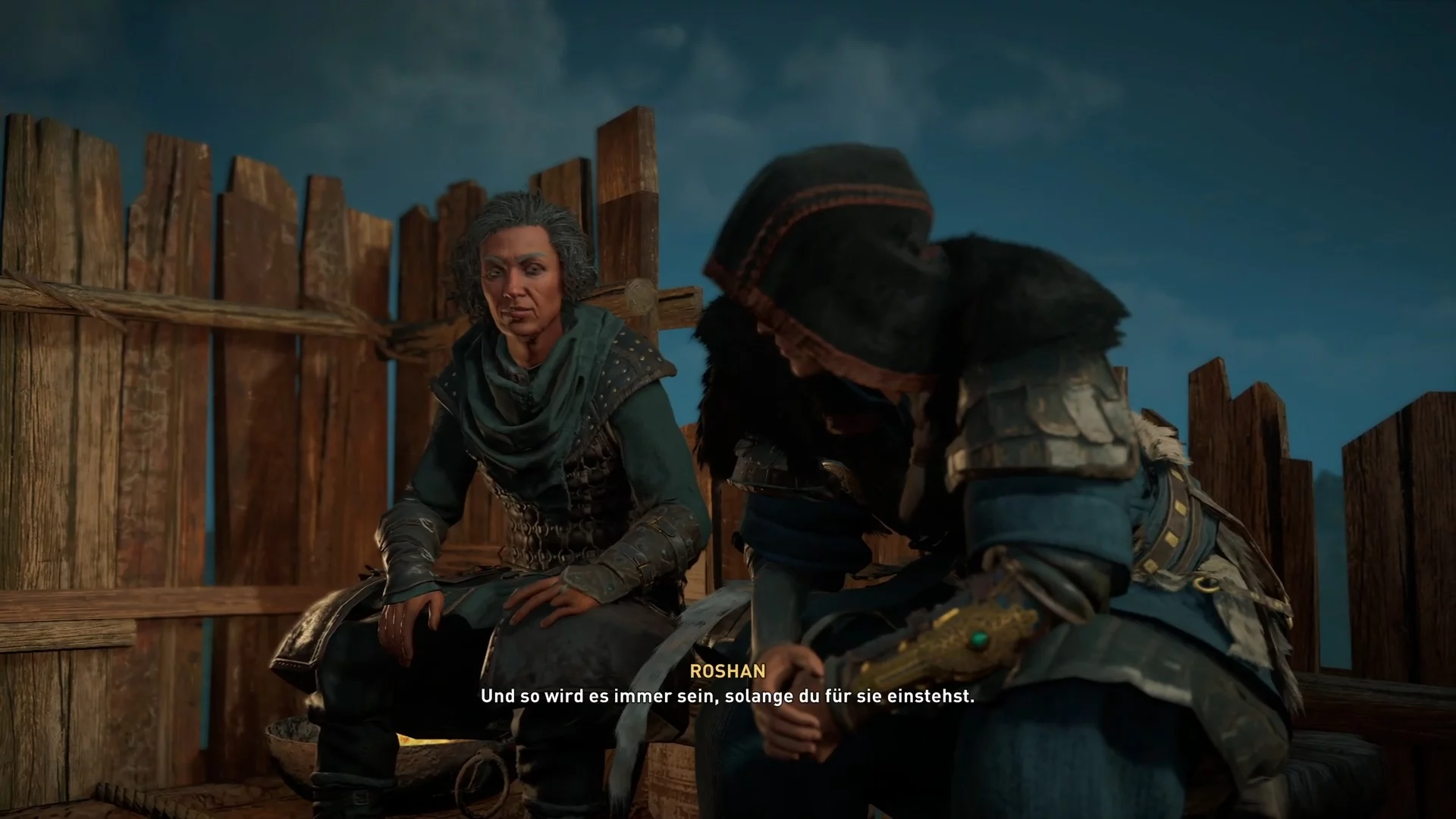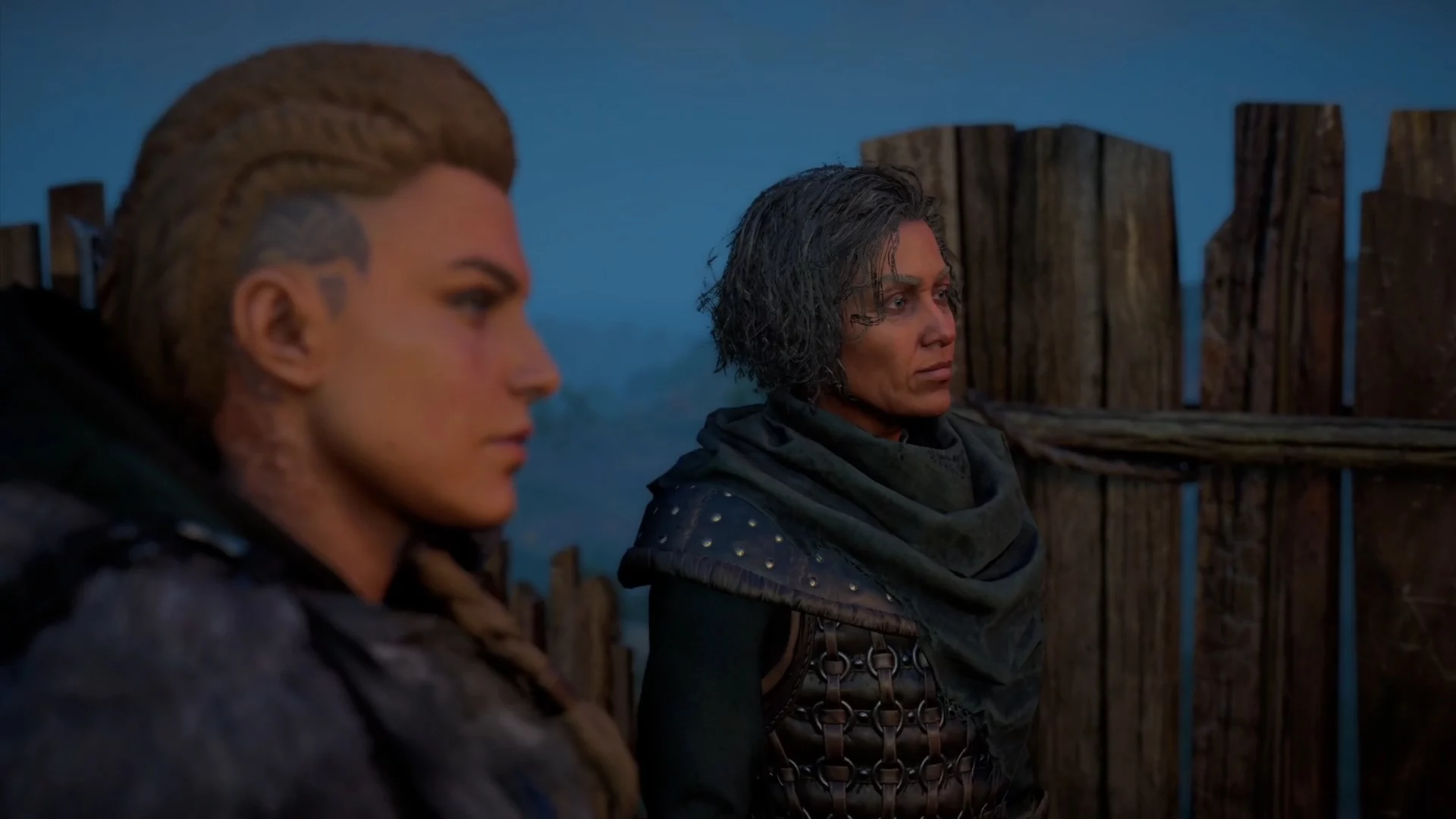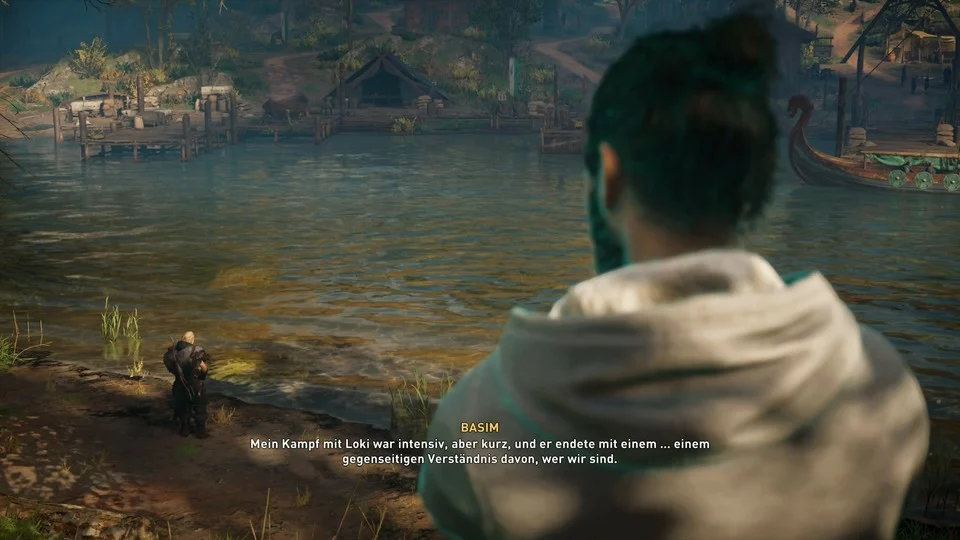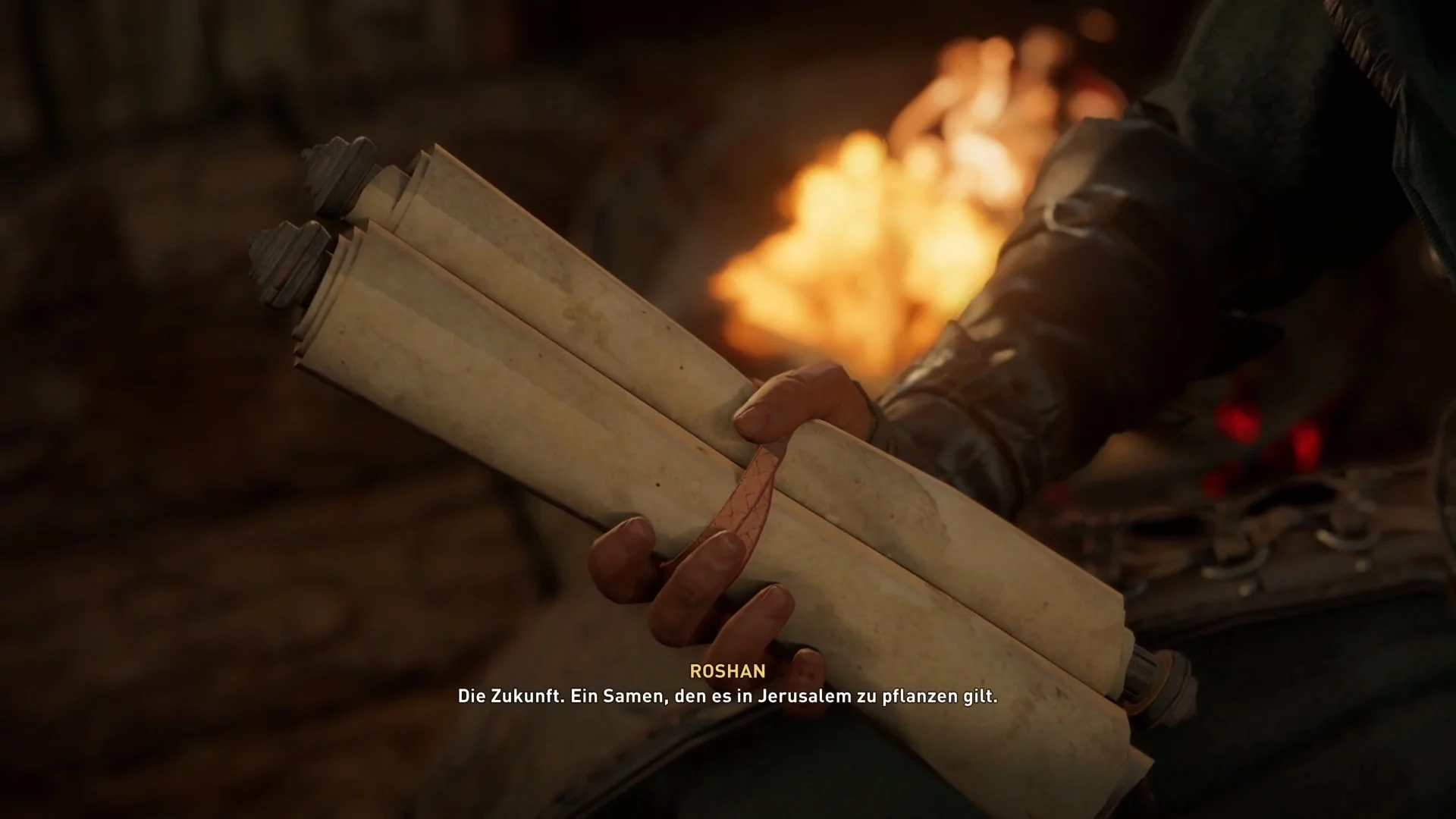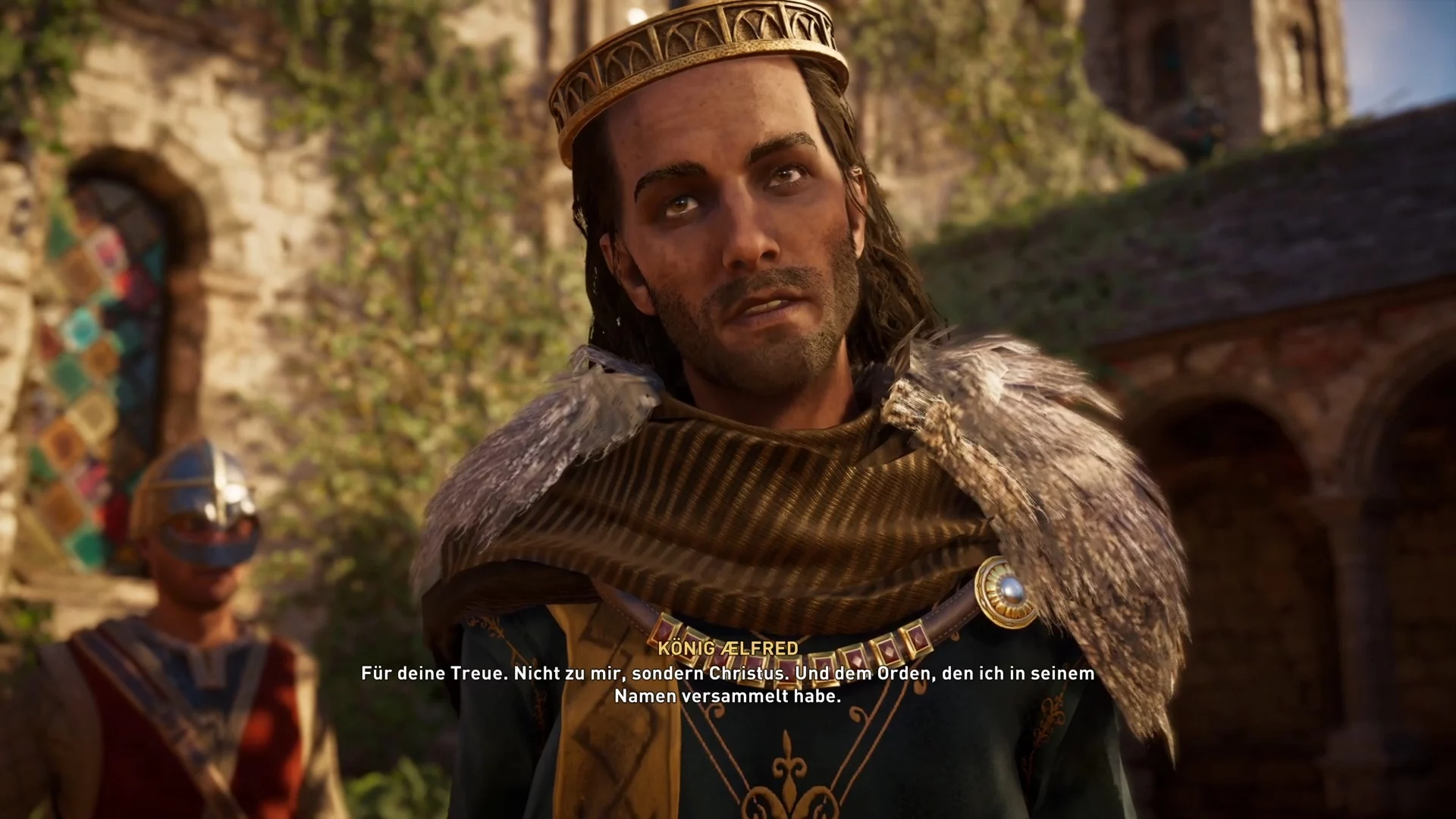2023 will be a fateful year for Assassin’s Creed. The crossover event in the predecessor Valhalla already shows in which direction Ubisoft is going.
2023 will be perhaps the most important year in the history of Assassin’s Creed. Despite the commercial success of Valhalla, the series is down with many fans: Open Worlds off the assembly line, convoluted storylines, split opinions on the new role-playing direction.
Assassin’s Creed Mirage is now Ubisoft’s great hope: based on the very first Assassin’s Creed, Mirage is supposed to evoke the sneaking and parkour strengths of the series anew and make many a misstep of the past forgotten. Ubisoft has already shown the way there: in the final Valhalla DLC The Last Chapter. Among other things, you’ll already meet an important person from the sequel there:
In fact, the final Eivor adventure already reveals a lot about the story, characters and setting of AC Mirage when you take a closer look. Reason enough for us to take a closer look and compile our findings for you, which go far beyond what is officially known about the new Assassin’s Creed.
Spoiler alert: In this article, we talk openly about the end of Assassin’s Creed Valhalla, the events in the present and the (possible) effects on upcoming parts of the series.
Table of Contents
Meeting a Legend
While searching for villains who cause fear and terror disguised as members of the Raven Clan, Eivor meets the mysterious Roshan. We know her, of course, from the trailer for Assassin’s Creed Mirage released last year as the Grand Mistress of the Order of the Hidden, based in present-day Baghdad. She was the mentor of Basim, who will not only be the protagonist in the next Assassin’s Creed, but also plays a major role in the story of Eivor and Layla.
Roshan herself gives further hints of the announced shift in gameplay to more stealth by saying, “What I lack in brute strength, I make up for in quiet unobtrusiveness.” Furthermore, the phrase is interesting because it expresses her being closely aligned with the Creed of the Hidden (the predecessor order of the Assassins).
If we consider the information from the trailers for Mirage and Roshan’s further statements, this is by no means self-evident. We know that Roshan, as Grand Master of the Hidden Ones, held a high position in the Order and introduced Basim to the community. A strong identification with the creed is therefore obvious. However, her statements in Valhalla suggest a personal twist of fate or even exile from the Order.
Since, like Eivor, she also carries a hidden blade, the two can’t help but talk about it. Roshan says of her killing tool, “After a long time, I finally have her back. The years without it were the hardest of my life.” This suggests two possible conclusions: Either Roshan really did lose the blade itself or – which we think is more likely – she lost her position as Grand Mistress of the Order. She then either regained it along with the blade or fell completely out of favour and now lives the creed as an outcast.
It may be that As’ila is directly or indirectly connected to these incidents, for Roshan describes her as “someone with a forked tongue”. She also belongs to “an order that achieves its goals through unrest and discord.” This effectively confirms that we’ll be fighting a Templar-like order again in Assassin’s Creed Mirage – but you don’t need to do much analysis for that.
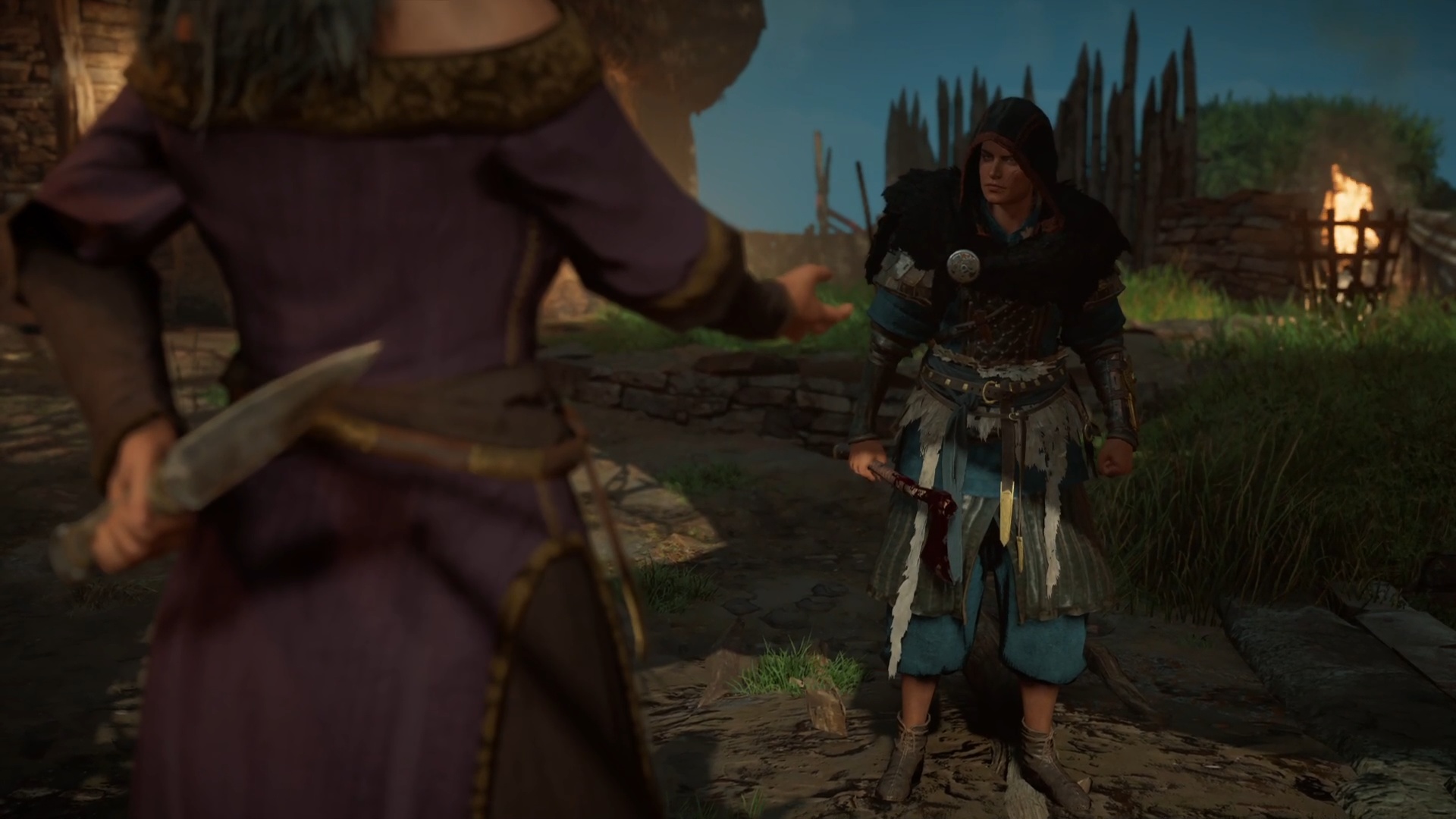
What is Roshan’s role?
Let’s puzzle the information together: the Order of Elders works with deception and discord. As’ila speaks with a forked tongue. Maybe she plays a bigger role in Mirage’s storyline and is even a member of the Hidden Ones or close to them as a covert member of the Order. Perhaps As’ila and Basim/Loki have something to do with Roshan’s descent within the Order, making the hunt for her a personal matter for Roshan. She says to Eivor, “Be content with the Eorl and leave As’ila to me.”
At least partly contradicting this is Roshan’s statement that As’ila “was just an obstacle on a long road”. Either way, that Roshan has had a troubled history is implied by her statements such as “I am a lifetime ahead of you” and “I was preying on her kind when you were still at your mother’s teat. “
There is also no question that we are witnessing this story. After saying goodbye, Eivor says to herself, “I wonder if I’ll ever know more about her.” She probably won’t, but we players in Mirage will. That was a direct statement to us in front of the monitors.
After completing the mission, Eivor receives the armour set “Mentor of Alamut”. This is another reference to Roshan’s (former?) position within the Order – Alamut is the name of the Assassin stronghold in Mirage, which already played a prominent role in Assassin’s Creed 1. In addition, the set brings bonuses to – well, of course – sneaking. The fact that the armour looks a lot like the Assassins of earlier parts makes the visual impression perfect.
What about Basim?
Whether one feels sympathy for Basim after the end of Valhalla remains to be seen. But the character is certainly exciting. In Mirage, we experience Basim’s backstory as he goes from being a talented pickpocket in Baghdad to a hidden man. We know that Basim is the reincarnation of Isu Loki, who tried to kill Eivor as the reborn Odin.
At the time Roshan and Eivor meet, Basim is trapped in Norway in an Animus-like machine representing the World Tree. Only when Layla Hassan frees him in the present does he escape, join the modern assassins and henceforth serve us players as an avatar in the Animus. He is also connected to a mysterious countdown.
From the main story we also know that the reborn god-part may have to be freed first, for instance through great pain. Only after Eivor’s brother Sigurd loses an arm through torture is he aware of being the reincarnation of Tyr.
If we put this in context with what we know of Roshan, the following could be possible: Basim is a young man with his own identity until his initiation rite with the Hidden Ones. In the trailer, he can be seen sacrificing his ring finger to wield the hidden blade. It is quite possible that from this moment the Loki part in him is awakened and begins to change him.
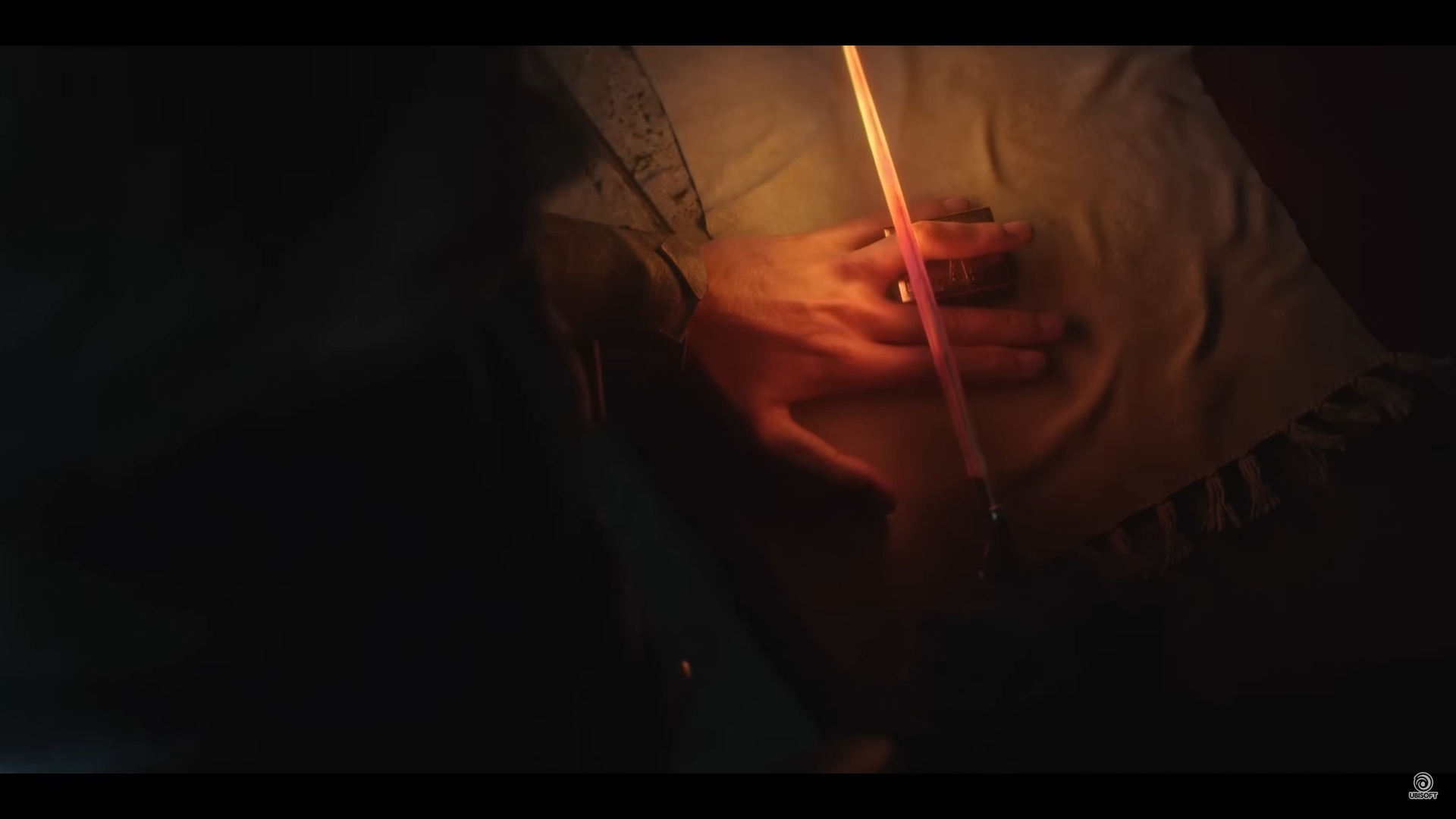
This leads us to the following questions: How did Basim become the character we know? And who exactly is he – Basim, Loki or a symbiosis of both? We find clues to the answers in the epilogue of the last chapter. Eivor decides to leave the village during a monologue with Odin, Basim observes and comments on this scene quite surprised, saying:
“Fascinating. Eivor engages with Odin’s memories in a way that is unknown to me. My battle with Loki was intense but short, and it ended with a … mutual understanding of who we are”
After this utterance, it is likely that the original Basim still exists in some form. This also becomes clear when Eivor says goodbye to Basim’s disciple Haytham. The latter tells us that he has no family and came to the Hidden Ones as an orphan at an early age. At this point Basim closes his eyes in sympathy, which speaks for quite understandable human emotions. It becomes clear that Haytham does care about Basim. On the other hand, Loki has also lost a family and is searching for his son. Perhaps a symbiosis of both identities is hinted at here.
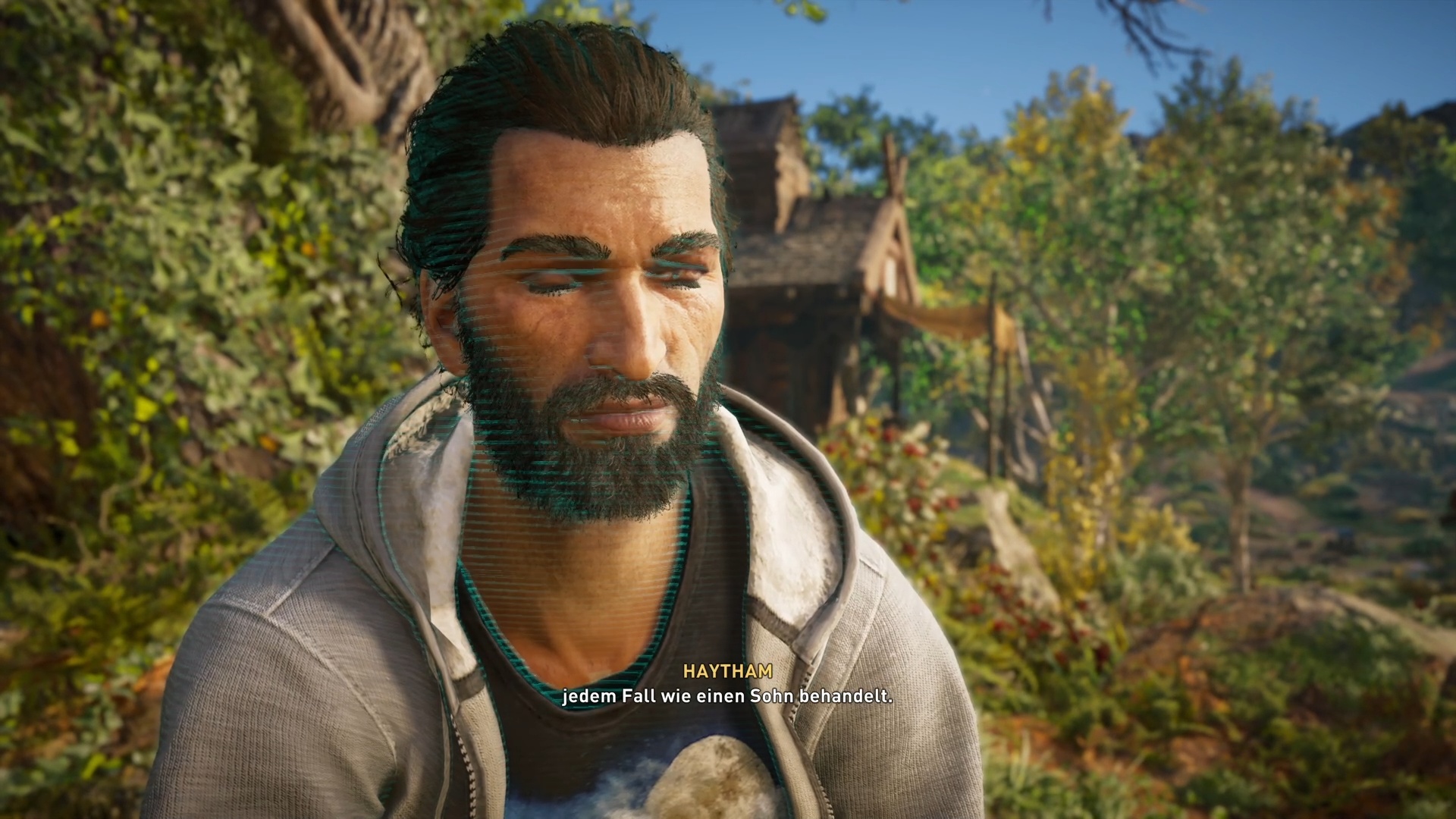
Fact is, however, Loki also has the upper hand when in doubt: After all, in the finale of Valhalla, he was blinded by hatred for Eivor/Odin and Sigurd/Tyr, who robbed him of his family. And even if he does not reveal his complete motives, he is still pursuing Loki’s goal of freeing Angrboda and finding his son.
In any case, it is definitely Loki who says to William Miles at the end, “We developed such technology far before you did” and, at least in part, the phrase that he wants to “whip the modern assassins into shape” strikes the same chord. While he claims to still respect the Assassins’ creed, nevertheless the overt arrogance speaks more for Loki than for Basim, who is always portrayed humbly throughout the story.
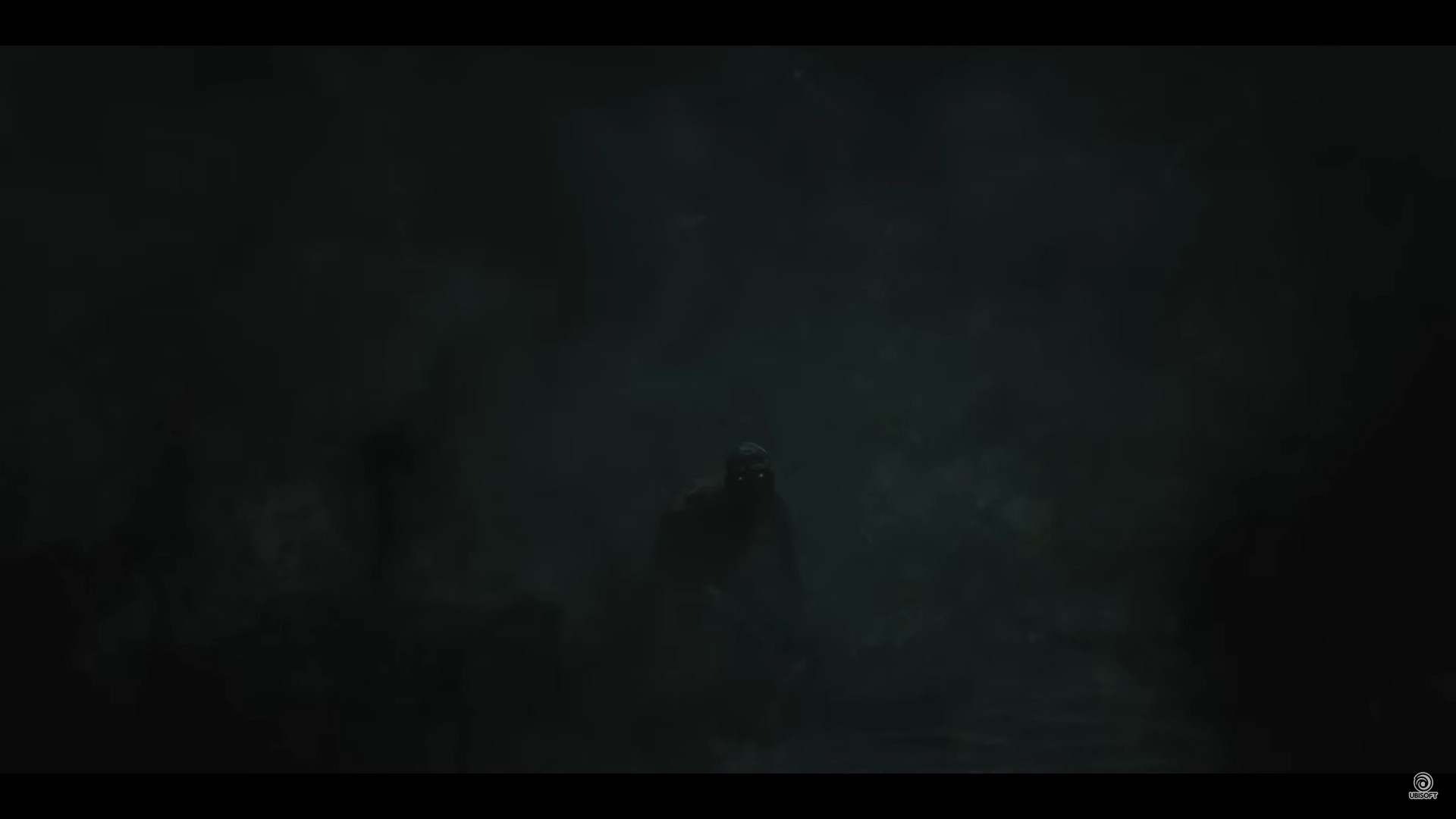
This sounds more like a consensual symbiosis. However, there is still the possibility of the supposedly freely deciding Basim. After all, Loki is known as a deceiver and trickster. It would be child’s play for such a rip-off Isu deity to manipulate a human being and skilfully direct him for his own purposes. With Mirage in mind, it will be exciting to find out how this character and his motivations are made up.
The hints of a remake
Both in the encounter with Roshan and in the final meeting with King Ælfred, there are a few tiny but important references to the 2008 series origin. For example, the assassin presents a scroll of parchment captured from As’ila as the true reward, and replies to Eivor that it is “The future. A seed to plant in Jerusalem.”
As we know, AC1 is set in 1191 in the “Holy Land” and along with Damascus and Acre, Jerusalem is one of the settings. Moreover, both Templars and Assassins are already fully developed – the seed Roshan mentions could have grown over the centuries. The real Templar Order was first founded in Jerusalem in 1118 under the name “Poor Knighthood of Christ and of the Temple of Solomon at Jerusalem. “
This leads us to King Ælfred, who repeatedly slips Eivor hints about Order goals during the campaign and signs them “A Poor Fellow Knight of Christ”. Moreover, in their last meeting he wishes loyalty “not to me, but to Christ. And to the Order I have gathered in His name.” In Valhalla he was head of the Order of Elders, but no longer agreed with its aims. It seems that he has already founded another order, which will probably be the direct forerunner of the Templars.
These are strong references to the first part of the series in terms of content. Mirage also goes more in the direction of AC with the setting in the Middle East and the focus on stealth. Although these are only speculations, Ubisoft should not have included these references to Assassin’s Creed 1, which are very clear in our opinion. Especially the formulation with the seed growing in Jerusalem in connection with the statement “This is the future” is very inviting.
But instead of going into the future, Assassin’s Creed Mirage first goes into the past. We are curious to see which of our assumptions will actually come true and what other secrets the game will reveal.
What do you expect from Mirage and the story of Basim? Let us know in the comments!

